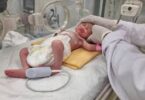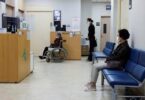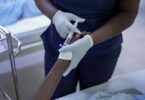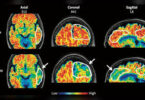Monitoring Desk
LONDON: Healthcare experts have developed an artificial intelligence (AI) model to predict whether aggressive breast cancer will spread — by detecting changes in the lymph nodes.
Lymph nodes are the structures under the arm which show whether breast cancer would spread in women with triple-negative breast cancer.
According to the experts, in these cases, patients are likely to need more intensive treatment but the AI model could help doctors plan treatment, alongside patients’ peace of mind about the likelihood of triple-negative breast cancer spreading.
Dr Anita Grigoriadis, who led the research at the Breast Cancer Now Unit at King’s College London, said: “By demonstrating that lymph node changes can predict if triple-negative breast cancer will spread, we’ve built on our growing knowledge of the important role that immune response can play in understanding a patient’s prognosis.”
“We’ve taken these findings from under the microscope and translated them into a deep-learning framework to create an AI model to potentially help doctors treat and care for patients, providing them with another tool in their arsenal for helping to prevent secondary breast cancer.”
An estimate suggests that 15%, of all breast cancers in the UK are triple negative, with more than 8,000 cases a year. This type has no proteins commonly found in breast cancers and it leads to 25% of deaths.
In the study, published in the Journal of Pathology, the medical experts experimented with their AI model on more than 5,000 lymph nodes donated by 345 patients to biobanks. The model successfully established the likelihood that breast cancer could spread to other parts of the body.
The study revealed that the AI model was able to make this prediction by simply analysing the immune responses in the lymph nodes, even when the breast cancer cells had not spread to the organs. The next step is the clinical trials.
Dr Grigoriadis added: “We’re planning to test the model further at centres across Europe to make it even more robust and precise.”
“The transition from assessing tissue on glass slides under a microscope to using computers in the NHS is gathering pace.”
“We want to leverage this change to develop AI-powered software based on our model for pathologists to use to benefit women with this hard-to-treat breast cancer.”
Dr Simon Vincent, director of research, support and influencing at Breast Cancer Now, said: “If, thanks to this research, it’s possible to provide women with more tailored treatment and care based on the likelihood of the breast cancer spreading, it could help to save lives and reduce stress and worry.”
“We look forward to further findings to understand how this could work in practice to benefit women affected by this type of breast cancer.”







